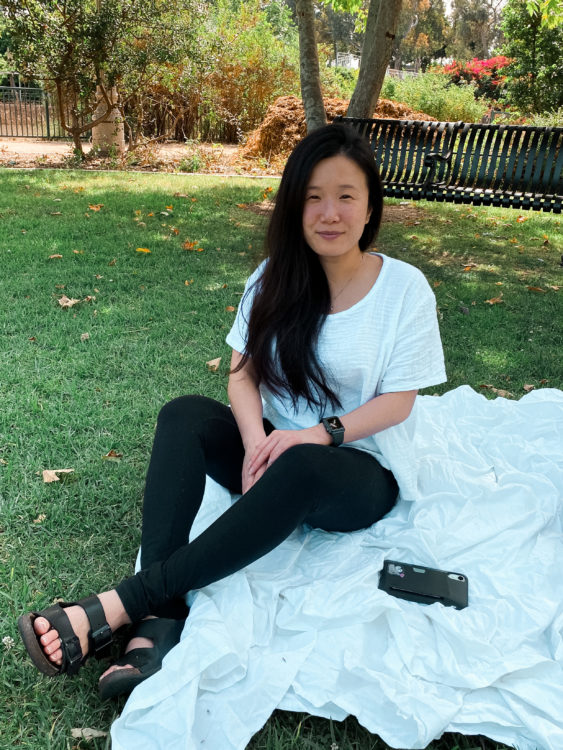
In this post, I’ll be sharing the money habits that helped me reach my financial goals in my 20’s. Before I get started, I wanted to say that I am not a financial professional and that I’m sharing personal guidelines for spending and saving. Please refer to my disclaimers page for more details.
Right before I graduated from college, I had just received my first real job offer with my very first real salary. I had no idea what $50,000 a year really meant at the time. Being super excited, I started counting my chickens and imagining all of the luxury items I could finally buy myself. I honestly wasn’t thinking about how much money to save for retirement. I am very fortunate that my good friend, who was also my roommate at the time, gave me some very sound advice regarding managing money. I’ve included some of the tips that my friend shared with me that have helped me build the money habits I have today. The tips that I share below are the ones that my husband and I’ve used to save up enough money to purchase our first house in Southern California by the time we were both 29.
Savings Guidelines
I’ve seen several guidelines for how much money you should try to save. The guidelines that will be best for you will be dependent on your lifestyle and circumstances. Depending on your job, where you live, your lifestyle, and your circumstances, your goals will vary greatly. The general guidelines I have followed for budgeting my income and expenses are as follows. I budget approximately 50 to 60% of my gross-income for fixed-expenses, 20% to 30% of my gross income for variable expenses, and 20% to 30% of my gross income for savings. Fixed expenses are the things that you pay for every month; this might include rent, mortgage, student loans, car payments, food, and utilities. Variable expenses are the things that you spend money on that can vary month to month; this might include gifts, shopping, unexpected car expenses, hair cuts, etc. Savings is the leftover money that you put away into investment accounts, savings accounts, or other some other form of wealth management vehicles.
See below for my money habits that helped me reach my goals. If you need more support, my good friend Joanna Ha is an amazing financial coach. Joanna helps female entrepreneurs find financial freedom. Her Instagram page is here. She is an incredible coach–and an even more incredible person. Check out her page and let her know that I referred you!
1. Prioritize paying off your debt
If you have any credit card debt, prioritize paying off these debts first. Generally speaking, credit card loans have higher interest rates than other types of debt. Of course, there are exceptions to this rule. Go through your bills, and check to see which loans you have that have the highest interest. Prioritize paying off the loans by interest rates in descending order. The higher the interest rate, the greater your loan amount grows in a specific period of time.
2. Set monthly saving goals
People always talk about the importance of saving money for retirement. Personally, I think that thinking about retirement at 22 can feel a little boring and irrelevant. But, what you should know is that financial freedom allows for opportunities that are not offered when you have no cash. If retirement seems too far away, you can still save for goals that seem a little closer to you. A lot of people save for their first house or their first car. Goals are important because they give you something to work towards. Even if you don’t have an immediate need for the money, it makes a huge difference when you have a rainy day fund. Which brings me to my next point
3. Have a rainy day fund
Saving for a rainy day fund is important. Life happens, and you might lose your job due to unforeseen circumstances–as some of us might have recently experienced with layoffs due to COVID-19 in 2020. It’s always better to have a rainy day fund in case you aren’t able to work or you’re out of a job. If you were recently laid off, read this. The general rule of thumb is the have around 6 months of living expenses saved up in your rainy day fund. This will help give you more peace of mind in case you need some cushion or time to find another job. Here is a link to a blog article on Mint.com that discusses rainy-day funds in more detail. I would personally make sure that I had enough money in my savings account to live off of for 6 months before I started saving for anything else.
4. Find reoccurring expenses in your budget that you can remove
Nowadays, your phone bill probably isn’t the only monthly reoccurring expense that you have. Chances are, you probably have a Netflix subscription, a Hulu subscription, and a few other subscriptions hat you’re paying a monthly fee on. I’m all for paying for subscription services if they’re necessary, but do you really need to pay for 3 different music streaming services? No judgment if you do; this is just a question to ask yourself. Although $15 a month doesn’t seem like a lot today, it adds up to $180 a year. Try to cut out the services that you can live without. For example, if you don’t shop on Amazon frequently, consider getting rid of the subscription. If you’re paying for several subscriptions, you might be able to save some money by cutting out a few that you can live without.
**Bonus tip: I use Mint to categorize all my expenses so that I can see if I’m meeting my budgeting goals.
5. Reward yourself when you hit milestones on the way to your savings goals.
Saving money can be fun too! I actually think this is the most important of the money habits that helped me reach my goals. Set up milestones for your savings goals. When you reach the milestones, be sure to reward yourself. This doesn’t mean go out and spend all of the cash that you’ve saved. But, this could mean going out to eat for a nice meal, or rewarding yourself with a latte, or buying the dress that you’ve been eyeing. For me, my reward for saving money is buying home decor.













